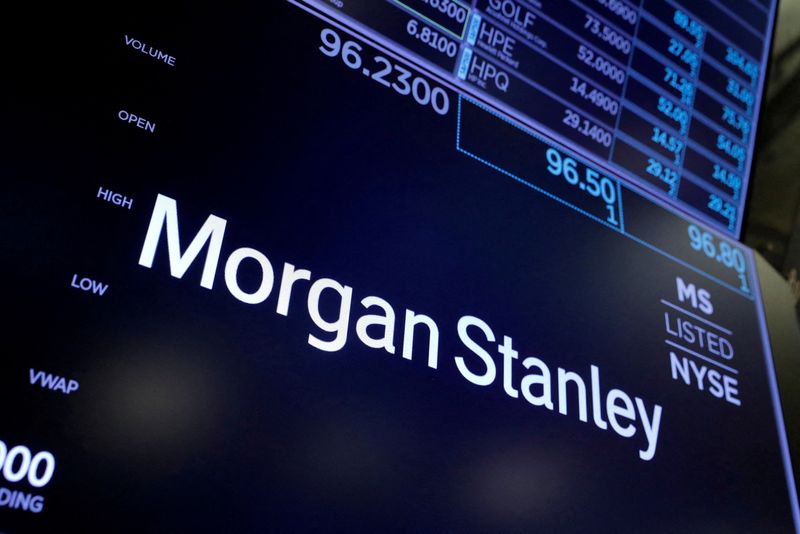By Tatiana Bautzer and Saeed Azhar
NEW YORK (Reuters) - Morgan Stanley's asset management division aims to double its private credit portfolio to $50 billion in the medium term as it gathers funds from large investors to loan out to companies.
The bank has invested more than $300 million into the business, which has already gathered about $25 billion in total assets from mainly institutional investors, David Miller, Morgan Stanley's global head of private credit and equity told Reuters in an interview.
"The vast majority of new capital will continue to come over the next decade from our institutional clients," Miller said. Institutional investors such as sovereign wealth funds and insurance companies hold two thirds of the current portfolio and wealthy individuals account for the rest, he said.
Miller estimates the broader private credit market has grown as large as $2 trillion.
The extension of private credit, of which direct lending is a key part, has increased since the financial crisis as stricter regulations made it more expensive for banks to finance risky loans for debt-ridden companies.
Activity has surged in the last two years. As banks' capital got tied up in risky loans and interest rates rose, groups of banks were able to provide less financing via traditional syndicated loans. Private lenders such as Ares Management (NYSE:ARES), KKR and Blackstone (NYSE:BX) swept in.
Still, Wall Street banks have found ways to participate in the new market by gathering money for loans from investors instead of using their own balance sheets.
Goldman Sachs CEO David Solomon told analysts this month that the bank seeks to raise $40 billion to $50 billion in alternative funds this year. A large chunk of that will be dedicated to private credit, according to a source familiar with the matter.
JPMorgan has set aside $10 billion of its own capital for private credit, sources familiar with the matter said. It is also seeking capital from outside investors, keen to partner the bank for the segment, one of the sources said.
JPMorgan declined to comment on its plans.
Wells Fargo teamed up with private equity firm Centerbridge Partners to build a business focused on direct lending to midsize, family-owned and private companies in North America.
With market participants increasingly expecting the Federal Reserve to cut interest rates, traditional banks are starting to become more competitive in loan markets versus to direct lenders, said Jeff Levin, Morgan Stanley's co-head of North America private credit and head of direct lending.
Lower rates will enable banks to charge companies less in interest for risky loans than private credit participants, who typically charge more. And cheaper borrowing costs are likely to spur more economic activity and dealmaking in general, another factor that could spur activity for banks.
"As the syndicated markets activity picks up and the banks become more aggressive, the share of private credit may decline among the large deals, but we will continue to see growth," Levin said.

Morgan Stanley's private credit group, housed in its asset management arm, has around 60 bankers that collaborate with investment bankers to originate loans.
Levin, who oversees a $16 billion private lending portfolio, said the loans are granted to companies ranging from mid-size to large corporations.